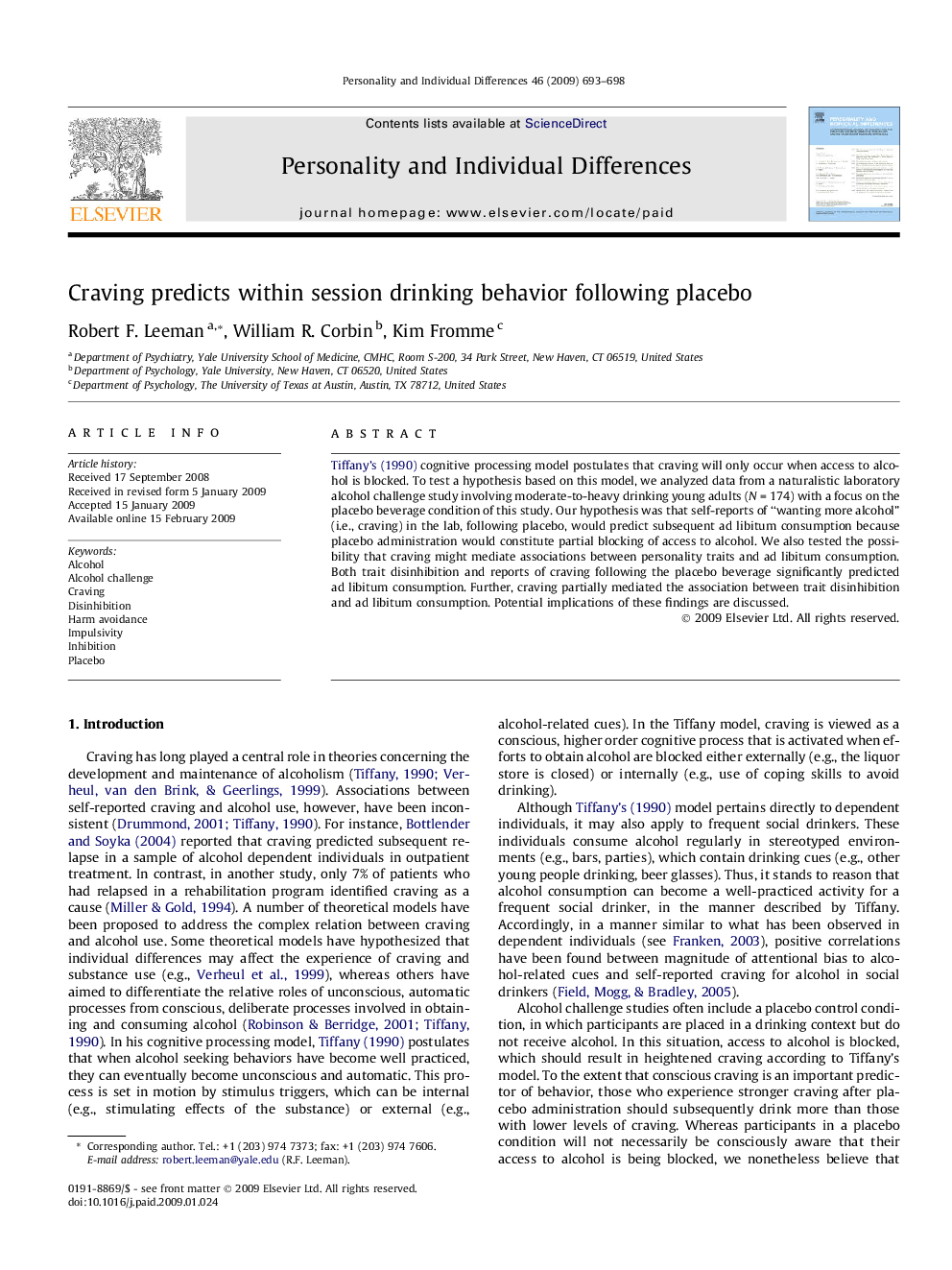| Article ID | Journal | Published Year | Pages | File Type |
|---|---|---|---|---|
| 892280 | Personality and Individual Differences | 2009 | 6 Pages |
Tiffany’s (1990) cognitive processing model postulates that craving will only occur when access to alcohol is blocked. To test a hypothesis based on this model, we analyzed data from a naturalistic laboratory alcohol challenge study involving moderate-to-heavy drinking young adults (N = 174) with a focus on the placebo beverage condition of this study. Our hypothesis was that self-reports of “wanting more alcohol” (i.e., craving) in the lab, following placebo, would predict subsequent ad libitum consumption because placebo administration would constitute partial blocking of access to alcohol. We also tested the possibility that craving might mediate associations between personality traits and ad libitum consumption. Both trait disinhibition and reports of craving following the placebo beverage significantly predicted ad libitum consumption. Further, craving partially mediated the association between trait disinhibition and ad libitum consumption. Potential implications of these findings are discussed.
